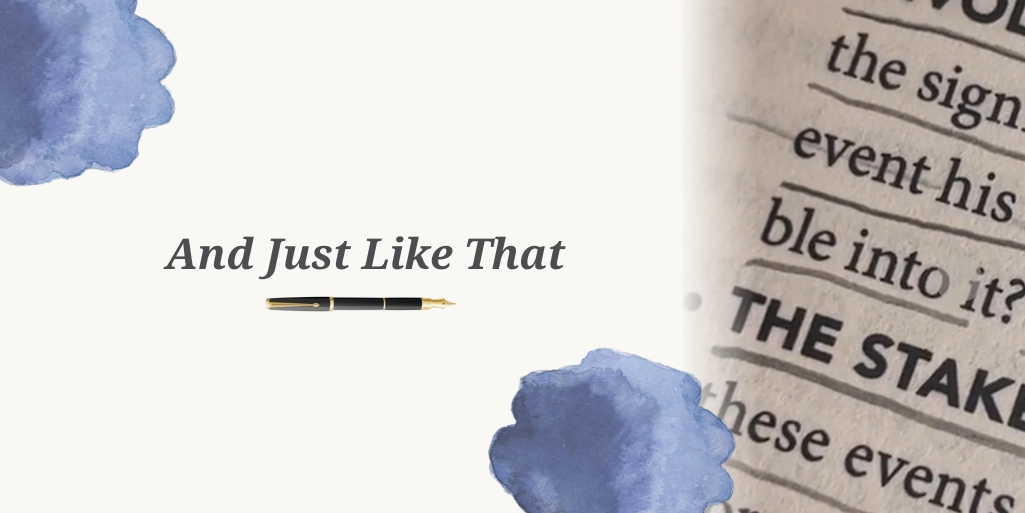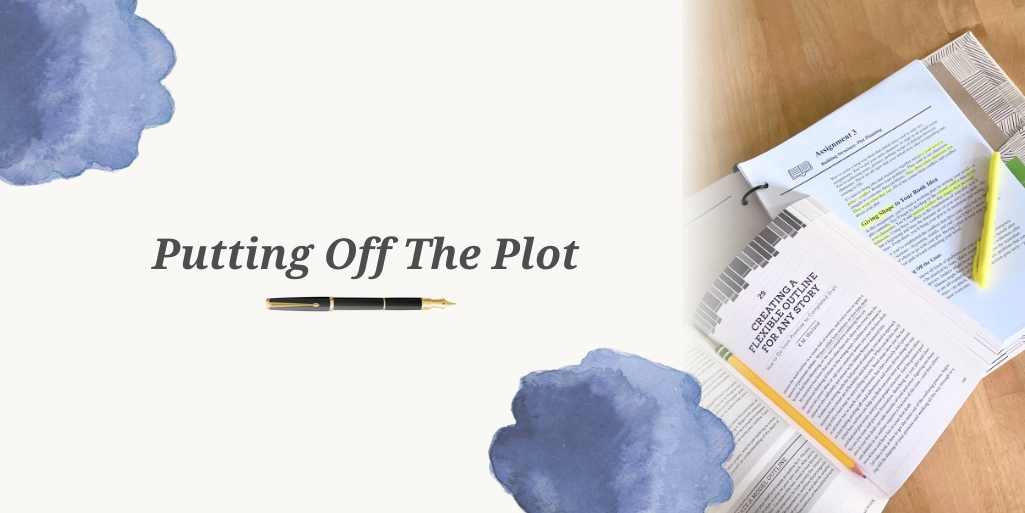
And Just Like That
Writing out the plot (or summary or synopsis) of my book has been the most daunting task by far, but I can say with confidence that it is equally the most energizing task to have completed.

I romanticized the moment ahead of time, like I often do. Deciding to commemorate the first feedback of my first chapter with a croissant (why not?), I stopped into a newly opened bakery nearby. Coffee, croissant and computer in tow, I steeled myself to open my instructor’s response. Opening the course dashboard, I blink: “unsatisfactory”. I blink again. I debate shaking my computer like a snow globe hoping the words will rearrange themselves on the screen. No luck. Revision requested. My instructor wanted me to try again.
I didn’t exactly expect a raving review of my chapter, but I didn’t expect to have a request for resubmission, either. It was a blow to the ego, mostly, being the perfectionist that I am. It took me some time to contextualize this experience within the writer‑editor relationship, which I’d given full subconscious permission to involve requests for revision—just not for my writing, apparently.
The revision request forced me to reconsider the paths I had not taken. If I was honest with myself, there were several forks in the road I navigated when writing the chapter. It could have become so many versions of itself. The biggest decision I made was to enter a flashback two paragraphs in, which I knew was a risk and wasn’t even sure myself was the right move. (I even wondered this out loud in my letter to the instructor.)
Their feedback in requesting a revision was essentially to try a version where I did not flashback so soon or so often, where I gave more context to what the reader experiences as the “present” for the writer. In some ways, this meant admitting that my initial instinct—the one I’d defended even as I questioned it— needed reconsideration. The instructor wasn’t rejecting my story; they were asking me to guide the reader more deliberately through its landscape.
Revision is necessary. We know this as writers. We sometimes loathe this as writers. We cannot escape this as writers and, in the end, we’re better for it (and so is our work). What I’ve come to understand is that good writing isn’t about getting it right the first time—it’s about being willing to revisit, reconsider, and reimagine how the story might become the truest version of itself. Sometimes that requires an outside voice to help us see what we’ve been too close to notice, or to echo instincts we’re otherwise ignoring.
The croissant, by the way, tasted even better when I ordered it the second time, pulling it apart in delight as I worked on my revision.

Writing out the plot (or summary or synopsis) of my book has been the most daunting task by far, but I can say with confidence that it is equally the most energizing task to have completed.

Writing out the plot (or summary or synopsis) of my book has been the most daunting task by far, but I can say with confidence that it is equally the most energizing task to have completed.

My notes app (and the twenty half-filled, half-abandoned journals I have stacked in the corner of my bookshelf) are full of threads I have yet to either pull or weave into writing.

Haley James is a writer living in Pine Lake, GA. In 2015, after joining a local writer’s circle, she re-integrated poetry into her work as a natural extension of songwriting, continuing to explore the fluid space between experience and memory. Her debut chapbook, i once had a dream that darkness was a language, released in July 2024, while her forthcoming book continues this exploration through longer form, always returning to the tender observation that has become her hallmark.
1000 N. West Street #1200, Wilmington, DE 19801
© 2024 Direct Learning Systems, Inc. All rights reserved.
1000 N. West Street #1200, Wilmington, DE 19801
© 2025 Direct Learning Systems, Inc. All rights reserved.
1000 N. West Street #1200, Wilmington, DE 19801
©2025 Direct Learning Systems, Inc. All rights reserved. Privacy Policy.